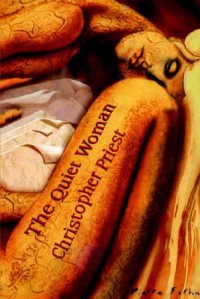The Quiet Woman
 Towards the end of this book, when the protagonist Alice finally manages to drag out of her antagonist George some kind of explanation as to why her manuscript has been seized, she is told this:
Towards the end of this book, when the protagonist Alice finally manages to drag out of her antagonist George some kind of explanation as to why her manuscript has been seized, she is told this:"The depiction of characters is sketchey, and only the most shallow of motives are attributed to them to explain their actions[...]The text changes direction unexpectedly[...]Parts of the story appear to have been left out. There are implausible coincidences. You seem anxious to explain many things, but the reader is left unsatisfied[...]At the end of the book there is a feeling of dissatisfaction, a sense that the book has been leading nowhere, that it is an artificial construct with no adequate purpose."
The above criticisms might well have been leveled against the very book one is reading and, one feels, the author's intended effect.
So then, one shouldn't approach this book expecting anything like a conventionally written novel or they will be heavily disappointed. But people don't approach Priest's work expecting that, do they? Let's just say I wouldn't suggest this book as a place to start with his work. But to one seasoned with Priest's writing, one will find an exploration of familiar themes that he has explored many times elsewhere, but in a new and intriguing way.
There are hints throughout the narrative that suggest that Priest might be casting himself as the protagonist and that this is in some way autobiographical but we are also warned that any truths will be wrapped in deceptions and contradictory points deliberately included. And are there not some aspects of the antagonist that we might imagine the author also relates to? And how much of Tom's conspiracy theories reflect the author's own view of Britain and the way it is developing?
A befuddling novel that will leave the reader pondering it's meaning for some time afterwards.



